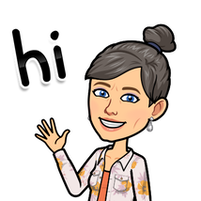 How do we and why must we build an inclusionary community for our children and ourselves? Consider these data points:
Since COVID there has been an increase in people expressing feelings of angst, stress, and depression in the US and in our own community -- these sentiments were on the rise prior to the pandemic. The same technology that adds to our ability to explore our curiosity and innovate, can deplete our sense of self when it eclipses being in community with one another.
Mayo Clinic studies indicate that the more time teens and youth spend with social media, the more likely they are to have experiences with bullying and unrealistic self-perception. When we are overly involved with our digital devices we are giving permission for our children to do the same. More importantly, we are missing out on strengthening relationships and modeling presence of mind. Our digital devices have a place in work and life productivity, and it is our responsibility to demonstrate how to place boundaries around their use. Our full attention says to another, “you matter and I value our time together,” our children need to feel and see that. Setting boundaries provides all of us time to focus on our well-being with activities such as rest and sleep. The Sleep Foundation recommends 8-10 hours for teens, 9-12 for school age and 7+ for adults. Without sleep we are more prone to tension, depression, and disease. Sleep deprivation impacts the mental health and cognitive abilities of youth exponentially. Additionally, good sleep prolongs life as described in this Feb 2023 article from the American College of Cardiology. We can influence the data towards greater life satisfaction and improved sense of belongingness for our youth through strong family and school partnership. Listening to our youth and asking them about the story they are telling themselves when they feel stress and asking them to instead observe what is happening so they can manage the situation successfully is one way we can do this. These and other tools described in this article on mindfulness for teens will provide them with the means to build their own capacity for self-efficacy and awareness. Mental health is not only about “me time” it is about quality of time with others and working through emotional and difficult situations alongside one another. Our village is our strength, within and beyond the classroom walls. A Culture of We is the foundation for developing an inclusive community and strengthening a sense of belonging within our MUSD family. In recognition of May as Mental Health Awareness Month, let’s be mindful of our own well-being, create a welcoming space for others, provide support and raise awareness. Comments are closed.
|
Cheryl JordanMessage Blog... Archives
June 2024
|
Milpitas Unified School District
|
|

 RSS Feed
RSS Feed
